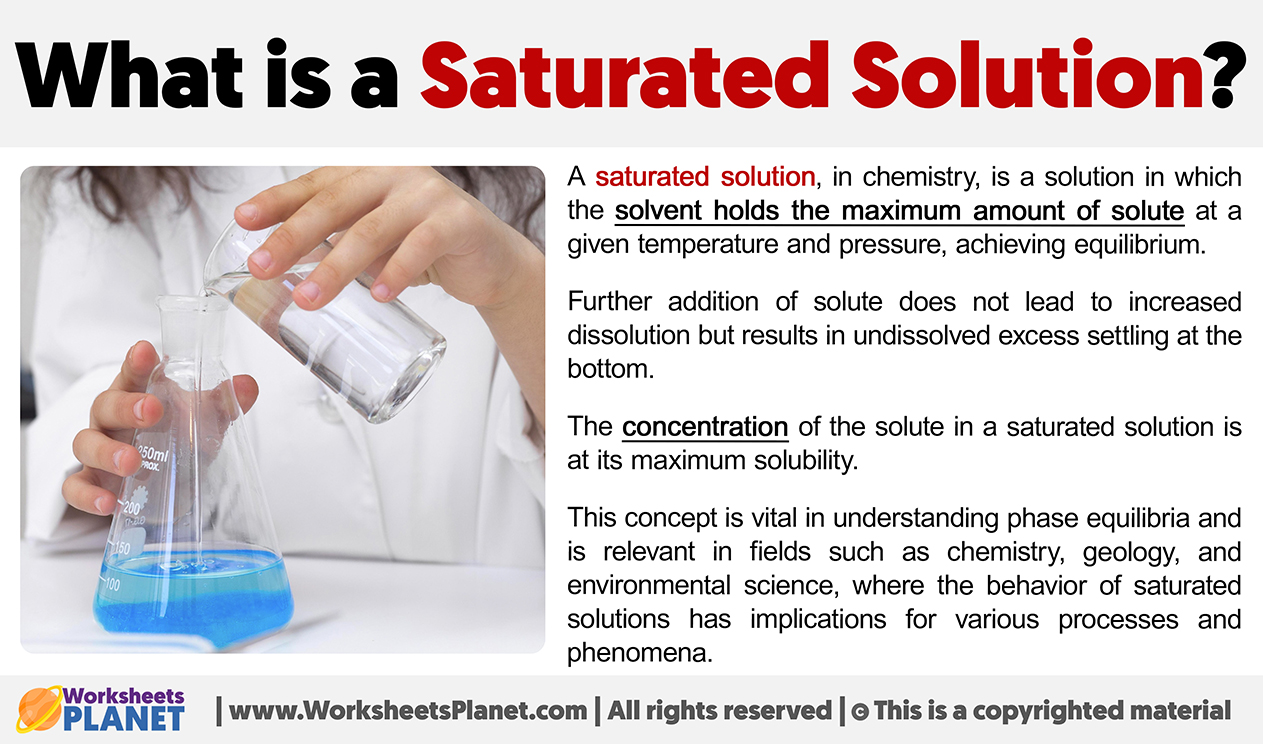A saturated solution, in chemistry, is a solution in which the solvent holds the maximum amount of solute at a given temperature and pressure, achieving equilibrium.
Further addition of solute does not lead to increased dissolution but results in undissolved excess settling at the bottom. The concentration of the solute in a saturated solution is at its maximum solubility.
This concept is vital in understanding phase equilibria and is relevant in fields such as chemistry, geology, and environmental science, where the behavior of saturated solutions has implications for various processes and phenomena.


